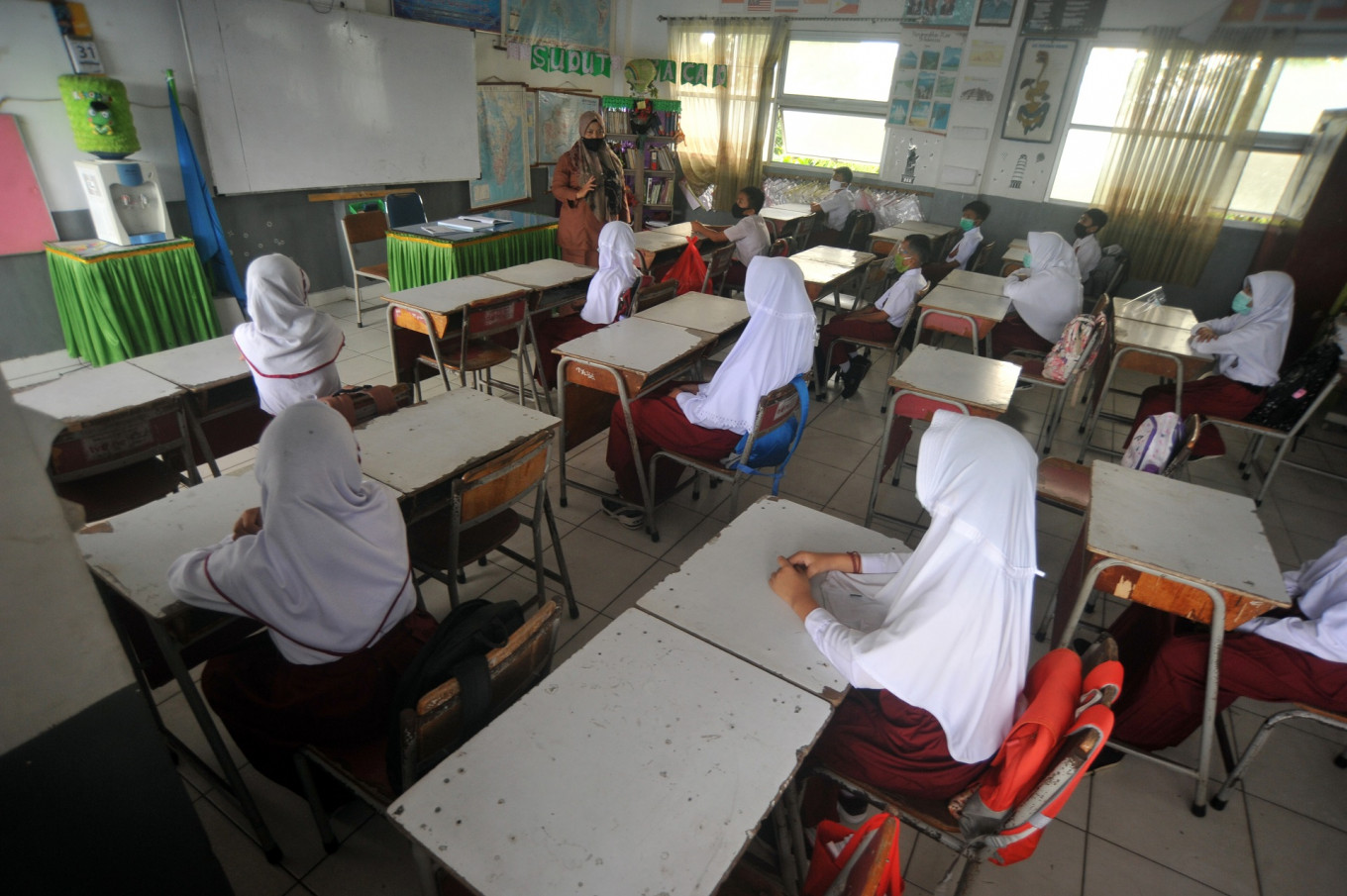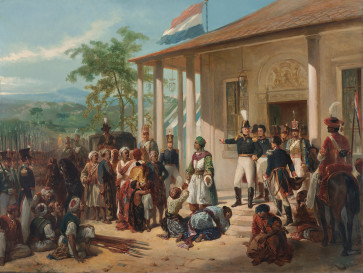Popular Reads
Top Results
Can't find what you're looking for?
View all search resultsPopular Reads
Top Results
Can't find what you're looking for?
View all search resultsMandatory hijabs have far-reaching consequences for Indonesian women
Human Rights Watch has said the hijab remains mandatory female attire in various institutions in Indonesia, posing psychological and even physical risks to the women compelled to wear it.
Change text size
Gift Premium Articles
to Anyone
H
uman Rights Watch has said the hijab remains mandatory female attire in various institutions in Indonesia, posing psychological and even physical risks to the women compelled to wear it, and has urged policymakers to ensure that the garment is made or kept optional throughout the country.
In a report titled I Wanted to Run Away: Abusive Dress Codes for Women and Girls in Indonesia, Human Rights Watch presented 142 in-depth interviews with schoolgirls, parents, guardians, female civil servants, educators, government officials and women’s rights activists conducted from 2014 to early 2021.
“The focus is on discriminatory regulations that force women and girls to comply with dress codes, especially those that mandate wearing a jilbab, or hijab or headscarf,” said Human Rights Watch’s Elaine Pearson on Thursday. “These policies put pressure on women and girls to wear the jilbab in schools, the civil service and at government offices.”
The report details what the headscarf has symbolized in the history of the nation besides its role as a symbol of piety.
The researchers said regulations based on sharia law had become more widespread in the country. The process started Aceh, the only province where sharia law may be extensively imposed, because of its special autonomy status.
Read also: Cover up: Indonesian women pressed to wear Islamic headscarves
Over two decades, sharia-inspired regulations started to appear at the provincial and local levels, often in the name of public order.
In 2014, for instance, many local administrations created mandatory dress codes for women and girls at schools, government buildings and some public places.
Two years later, the government-sanctioned National Commission on Violence Against Women (Komnas Perempuan) identified 421 bylaws passed throughout the country from 2009 to 2016 that discriminated against women and religious minorities. There have been a number of calls to revoke the regulations, but the central government has largely declined to act, never treating the matter as a priority.
Read also: Indonesia’s religious minority students struggle against systemic bigotry
In the report, some women said they feared for their educational opportunities and their careers if they chose not to wear a hijab. Some girls who chose not to wear hijabs said they had been forced to leave school or had withdrawn under pressure, while female civil servants had lost their jobs or resigned to escape constant demands to conform.
A mother in Yogyakarta was heartbroken when she saw her daughter suffering at school in 2017 because of her decision not to wear a hijab. The girl was constantly pressured by her teachers at the state school to wear the headscarf, according to her mother.
“Although the school and her teachers do not all explicitly say she must wear a jilbab, they tend to give unsolicited comments or make fun of her choice not to wear a jilbab. The pressure is, in a way, implicit – but constant,” she said, as quoted in the Human Rights Watch report.
Mandatory dress codes are also believed to expose women and girls to unnecessary physical dangers. Women who live in more conservative parts of the country, such as Aceh, West Sumatra and Central Java, or who are forced or pressured to wear hijabs are generally required to wear long skirts instead of long pants. This puts them at high risk of having their clothes caught in motorcycle wheels, especially when they are also required to ride side-saddle, such as in Aceh.
In Yogyakarta, 10 girl scouts wearing long skirts died when they were swept into a river during a hike in February 2020. The rescue team said the long skirts had limited their physical movement and might have contributed to the drowning.
Recently, a female non-Muslim student at SMK 2 state vocational high school in Padang, West Sumatra, refused to comply with the school’s hijab dress code for girls during an online class. An ensuing national controversy prompted Education and Culture Minister Nadiem Makarim, the religious affairs minister and the home minister to issue a joint ministerial decree banning public schools from prescribing any mandatory religious attire.
Read also: No religious dress code in public schools, ministerial decree states
Interfaith activist Alissa Wahid said the hijab controversy stemmed from the rise of Islamic conservatism in Indonesia, growing majoritarianism and a governmental decentralization effort that had been poorly managed.
“As long as the underlying and fundamental issues are not managed, we will still see mandatory local regulations, discrimination and social pressure to wear the hijab,” said Alissa, who is the daughter of late moderate cleric and former president Abdurrahman Wahid.
“This leads to limitations in other areas, like curfews and domestication. In the long run, this leads to the loss of self-determination for women, which in turn affects other aspects of women’s lives.”
Concluding the report, Human Rights Watch recommended that key authorities take action to stop the discriminatory cycle, noting that one of the easiest ways to do so was to enforce the recently issued joint ministerial decree on attire at schools.










